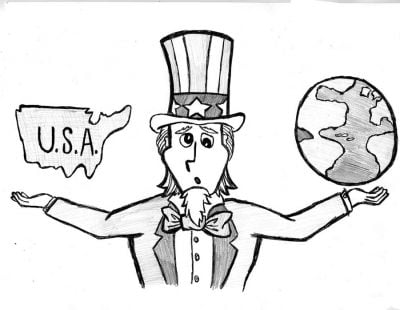The NRA Lobby, Big Pharma, Big Oil, AIPAC and Wall Street

Lobbying in the US is protected under the First Amendment, which enshrines the right to petition the government. It is a legitimate right not only in America but in all democratic societies – always provided that right is not abused, for otherwise, the majority suffers.
However, in the US, this right translates into powerful corporations, unions and special interest groups such as the NRA and AIPAC, among others, attempting – and succeeding – in spending billions of dollars to buy influence in order to amend or bring in legislation to favour their commercial, political or foreign policy agendas. Much of this lobbying is insidious and very often takes place behind closed doors. Its effects can be observed at any time by examining the behaviour and loyalties of any elected representative sitting in either the House or the Senate; by identifying who bankrolls their election campaigns and who ensures that their political opponents rarely get elected. This information is mostly in the public domain.
The point is that whilst these special interest groups represent their members they do not represent the majority and, therefore, legislation that may be enacted as a result of their influence, benefits only a specific minority, and that can mean disadvantaging the mainstream electorate. So whilst a comparative handful of Americans, and foreign states, become rich and powerful as a direct result of legislation enacted by an indebted US Congress repaying a favour, the vast majority of the 320 million American citizens lose out. This is not democracy and this is absolutely not what was intended by the First Amendment, which has unfortunately been corrupted for the benefit of a number of powerful minority groups.
In the main, there are about a dozen lobbies who effectively control virtually all legislation enacted by Congress and state legislatures by the targeted expenditure of literally millions of dollars, every year and, unlike the UK, there is apparently no restriction on the huge amounts spent on buying power in order to influence the state and national legislatures, and the executive. The dominant lobbies are currently:
1. The National Rifle Association (NRA)
2. The Israel Lobby (AIPAC)
3. The Arms & Weapons Industry
4. The Mining Industry
5. The Technology Lobby
6. The Pharmaceutical Industry
7. The Oil and Gas Supermajors
8. The Agricultural lobby
9. Wall Street / Financial Lobby
10. The AARP
In total, these lobbies may represent a few hundred thousand members, but they are essentially minority interest groups – out of a total US population of many millions. They work essentially in the interests of their individual members’ own financial or political advantage. And, most importantly, they influence the election not only of Congress but also of the office of the US President.
Put bluntly, the system stinks. It benefits the few at the expense of the many, and runs directly counter to the very essence of democratic government and the spirit of the First Amendment of the United States Constitution.
Featured image is from Michal Shlapentokh-Rothman / Prezi.

